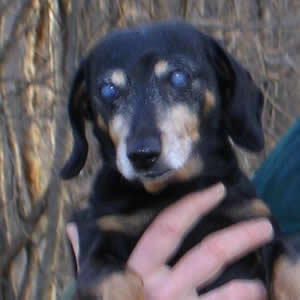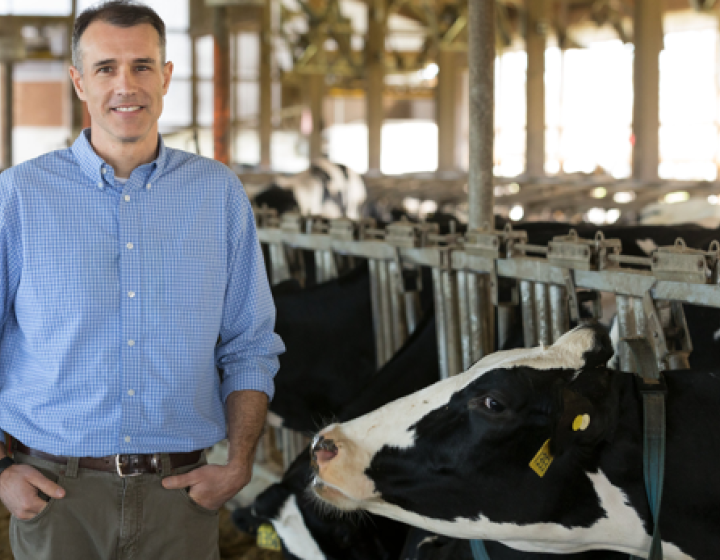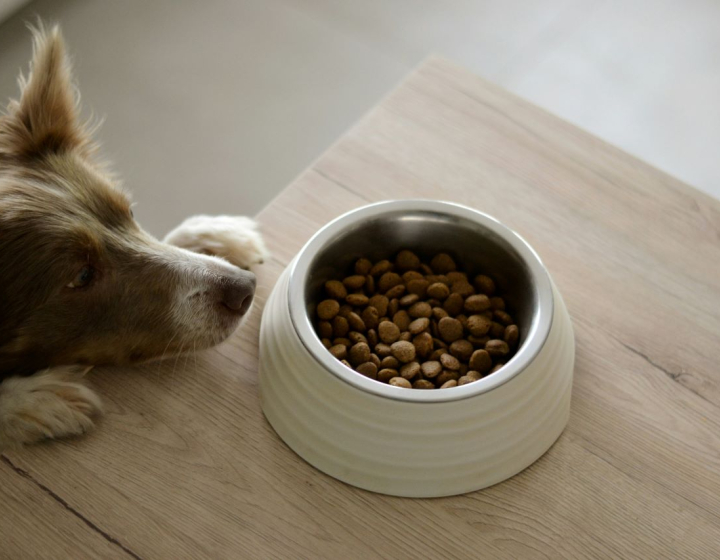CUHA exam room named in honor of elderly dachshund
 Ronald Lagoe spent more than 20 years with his beloved dachshund, Ruthie, who faced many health obstacles and became a beacon of bravery and persistence to many people, including the veterinarians and staff who cared for Ruthie at Cornell University Hospital for Animals (CUHA). With Ruthie’s recent passing, Cornell has named an exam room in CUHA in her honor.
Ronald Lagoe spent more than 20 years with his beloved dachshund, Ruthie, who faced many health obstacles and became a beacon of bravery and persistence to many people, including the veterinarians and staff who cared for Ruthie at Cornell University Hospital for Animals (CUHA). With Ruthie’s recent passing, Cornell has named an exam room in CUHA in her honor.
The Cornell University Hospital for Animals provides veterinary care to a wide variety of species ranging from pet dogs and cats to exotic pets and wildlife. The hospital has over 20,000 client visits per year at its facility on the Cornell University campus. The oncology service offers comprehensive consultation, diagnostic services, staging and treatment plans for all cancers of companion animals. One of its three presiding clinicians, Dr. Cheryl Balkman, worked closely with Lagoe and Ruthie through her last years.
“Ruthie was the oldest dog I’ve ever treated; she had a very spunky personality and was a favorite of ours. She taught many veterinary students and clinicians over the years,” said Balkman.
Ruthie survived two bouts of cancer, blindness, back problems, and other health issues. She passed away June 19, 2014 at age 20.
“Ruthie was a great source of inspiration to me,” said Lagoe. “She lived for more than 20 years and no matter what she faced she just kept coming back, never taking no for an answer.”
In addition to naming an exam room at CUHA, Lagoe and a number of local veterinarians have established a foundation in Ruthie's honor to educate people about elderly pets and provide limited financial assistance to help care for them.
“We set up the Ruthie Foundation designed to support the care of elderly dogs and help owners and veterinarians with caregiving responsibilities,” said Lagoe. “To this end we’ll be working closely with Cornell and owners who take pets to Cornell and other veterinary care providers.”
A major objective of The Foundation is to encourage caregivers to support elderly dogs through information concerning health conditions and forms of treatment. Elderly dogs supported by The Foundation's resources include those with ages greater than 13 years. The Foundation's resources are obtained from private donations. Funding for care supported by The Foundation is channeled through veterinarians and related organizations. It can support nutrition, medications, and veterinary care.
To learn more, visit: http://www.theruthiefoundation.com/ or call 315.464.8971.




